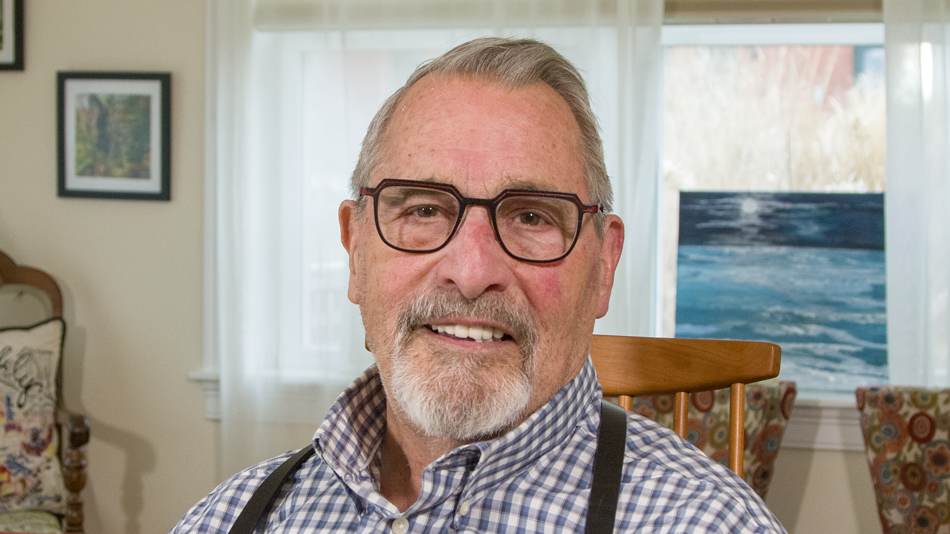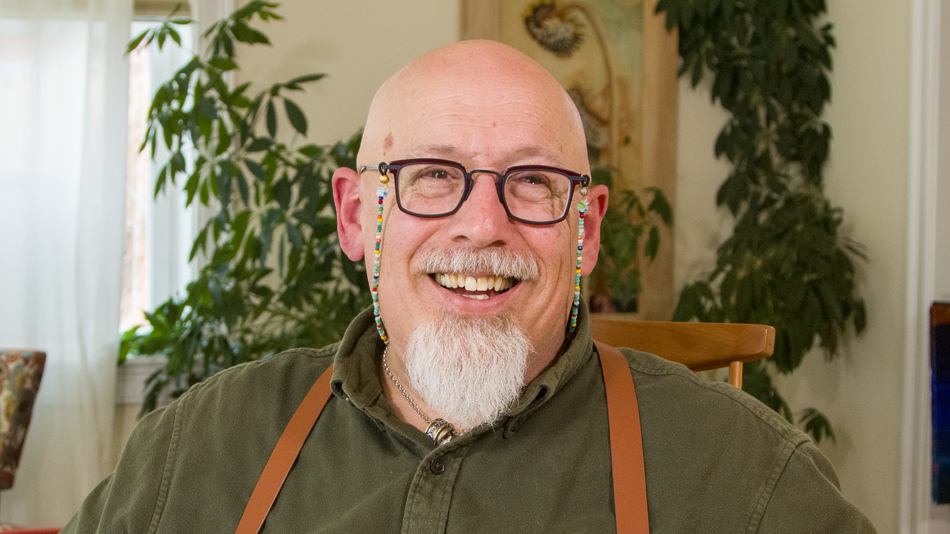Hi, my name is Nick Donias. I’m from Fort Worth, Texas.
Growing up in Texas, I was the youngest of four children and we grew up in what people call the bad part of town. And I found peace outside of all the negative activity that happened in my city through going to church. And this was a Pentecostal, Bible-preaching church. Imagine every day, Sundays of praise and worship, which is the singing, is an hour long, everyone rushes to the front, is clapping their hands, running in circles, doing the helicopter with their blouses and shirts, falling on the floor. And that was such a big important part of church for me, feeling that I belonged to this community that was a safe place for me outside of all the bad things that were happening in my hometown.
But as I grew up I started to learn more about myself as well. I noticed in middle school I would stare longer at my friends on the football team than any, you know, Britney Spears in a music video (although I liked watching her music videos). I had this teen version of the Bible that talked about different stories of sin. And I remember coming across “My friend is gay and what should I do?” And I remember when I read that short story, they pointed to the scripture in the Bible that said there’s no room in Heaven for people like this.
I was a senior about to go to college, another exciting moment for me, but I was on my knees saying, “God, change me, change me, change me!” And then just something clicked and told me I can’t change. At that moment, I made a choice that, well, if I can’t be fully committed to this then I can’t be any part of that. I decided to start to walk away from the church, and it happened at the same time that was going away from Texas to New England, Providence, Rhode Island, to my school Brown.
Sometimes when I’d go home when I was in college, I would go home back to Texas. And my family was still going to church so I joined them sometimes. And the church was such a big support with helping me set my goals to finish high school, to get into college. They would ask me to come on the stage and gave a little speech, an update about what I’m doing, and help motivate others in the church. And then they’d all come around and pray for me. And I would just think in those moments that I was being dishonest, that I was a fraud.
About my second year of college, I started accepting myself, coming out to myself. And I started sharing that with some of my friends from high school and from home. One day, when I was back at home in Texas, my second year in college, I told one of my youth group friends from church. And I was shocked when they had said that, you know, “It doesn’t matter to me.”
He speaks in biblical terms sometimes. He would tell me, like. “You’re perfect in God’s eyes and so you being gay is not being imperfect, it’s being just who you are.” And although I heard that from him and it meant a lot to me, I still had my, you know, rooted teaching that, you know, this is what the Bible says and I need to follow it, word for word.
And so even though, starting from him, he was accepting. And when I came out to my family, they were also accepting. The church started rumors and [I] came more out to the church, they still celebrated me. They still were like, “Nicholas, we love you and we’re happy for the journey that you’ve been on.” But it was still years after that that I started to reconcile those differences myself.
After graduation, I got my first job in New York and I moved here to New York City, which was one of the best things that could have happened to me. I had a great community of friends. One night, I was with some of my closest friends. We were celebrating, you know, being here in New York. We’re growing in our careers. Everything’s looking really good for us. And we go out to our usual bar that we end up at called Therapy. What they usually do is they play these slow songs but have a upbeat tempo to it. And all of us were like fist pumping our hands when that beat dropped, like “Yeah!”
And then for one moment, I noticed myself when I’m pumping my hands up and down, my fists turns into an open hand and I just stand still for a moment. And I’m reminded of a song back when I was a child at church. And I start singing that song. It’s goes “Holy, holy, are you lord God almighty?” After the moment, I snap out of it and I just rejoin my friends and we continue the night out. And then on my cab ride home, I think to myself, like, What was that? What happened?
Later on when I thought about it, I just thought that you know, this is how I felt at church when I would go as a kid and I was surrounded by all these people in the place that I felt safe outside of my home. That place Therapy was my new home and my new family. And that was where I found that my peace.
After that moment, I decided to explore back in getting into my religious roots. The more I refocused on my spiritual journey, realized that, you know, I don’t, like – it’s a journey. Now on Sunday mornings, I might not be at church but I am cleaning my house, playing my Christian music on blast, and really worshiping one-on-one. I can have my fun and community in Hell’s Kitchen at Therapy, and the same religious experience I’ve had in Texas at the church – now I have it at home with my radio and my broomstick.
For me, my religious life is as much a part of my identity as my queer life. And so there’s a really great peace that you have with being able to reconcile accept all of your identity for who you are. If you found peace completely moving away from religion, then that’s good. But if you’re questioning, you know, can I go back? I think the answer is yes.








Share